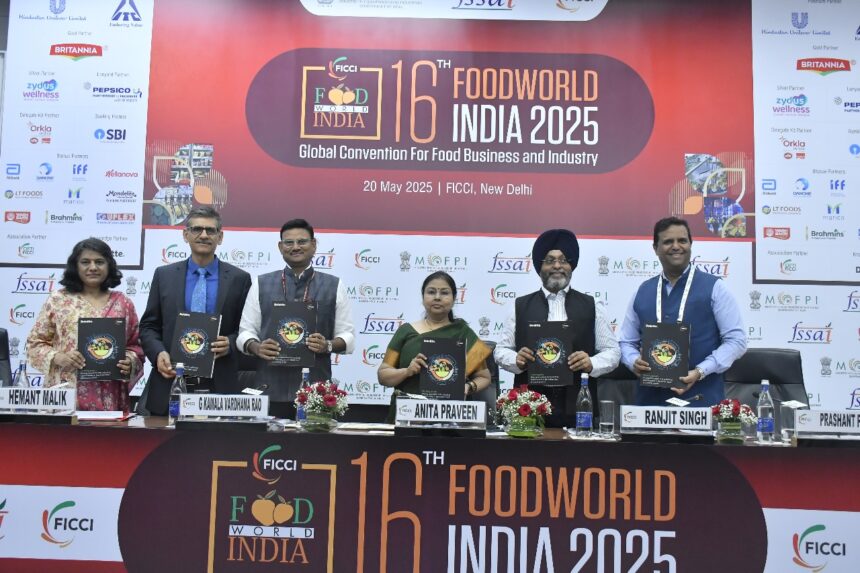NewzVille Desk
India has identified more than 100,000 warehouses as part of a push to reduce post-harvest losses, noted WDRA Chairperson Anita Praveen, Chairperson, Warehousing Development and Regulatory Authority at the 16th FICCI Food World India 2025 conference. “Today, we have over 100,000 identified warehouses, and we are trying to bring in as many as possible into the fold of the WDRA,” she said.
The integration of warehousing and food processing is considered crucial for handling India’s growing agricultural production, which continues to increase year after year. “The food processing sector and warehousing are two very crucial players as far as the surplus food is concerned. Otherwise, we end up with lots of losses of food,” Praveen said.
G. Kamala Vardhana Rao, Chief Executive Officer of FSSAI, highlighted the changing consumer landscape, noting that “most people no longer go to supermarkets to pick up products. Now everything is coming home—supermarkets are coming home.” Rao also addressed the shifting consumption patterns towards packaged and processed foods, urging the industry to consider its “great social responsibility” to ensure proper nutrition content in products as consumers increasingly rely less on home-cooked meals.
Ranjit Singh, Joint Secretary, noted that the government has funded nearly 1,600 projects, creating a food processing capacity of 4.1 million tonnes and benefiting approximately 900,000 farmers. The Production Linked Incentive scheme has catalyzed investments worth ₹7,000 crores and generated over 250,000 employment opportunities across the country.
Hemant Malik, Chair of the FICCI Food Processing Committee and Executive Director, ITC Ltd & Div CEO ITC Foods, expressed industry concerns about the labelling debate, advocating for serving-size-based front-of-pack nutrition information rather than per-100g measurements, since “most consumption of packaged food is in small sizes,” and cautioned against broadly categorizing packaged foods as “ultra-processed,” citing examples such as soy nuggets, which provide affordable protein despite being processed products.
Jyoti Vij, Director General of FICCI, highlighted rural prosperity as a priority for FICCI, emphasizing that the food processing sector holds immense transformative potential in realizing this vision. She noted that the sector enables value addition at the farm gate, fosters entrepreneurship in tier-2 and tier-3 cities, and reduces post-harvest losses—ensuring economic growth reaches the grassroots.
On occasion, the FICCI-Deloitte White Paper, “Spurring Growth: Driving Innovation and Unlocking Opportunities in the Indian Food Processing Sector,” was released. The paper highlighted that India’s food processing sector is undergoing transformative growth driven by rising disposable incomes and evolving consumer preferences.
Prashant Peres, Co-Chair, FICCI Food Processing Committee and Managing Director, Kellanova South Asia, also spoke on occasion.






